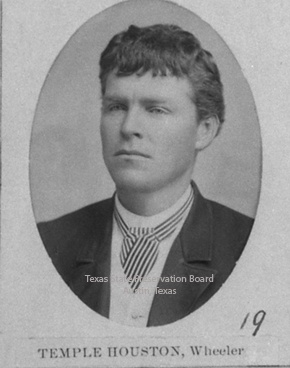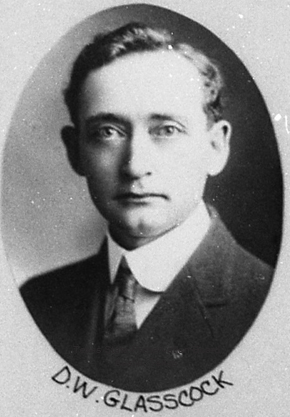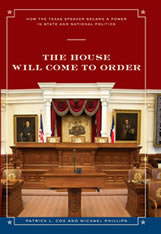- "Senate passes controversial payday loan bill," Austin Business Journal, April 24, 2013.
- "Payday Loan Curbs Considered by Three U.S. Regulators," Bloomberg, April 23, 2013.
- "Uneasy Money: An Observer Panel on Reforming Texas' Payday and Auto-Title Loan Industry," Texas Observer, April 24, 2013.
Week in Review, April 25th
Apr 25
- See an aerial view of West, Texas before and after the fertilizer plant explosion. (Austin American-Statesman, April 2013)
- Read the criminal complaint filed in federal court against Dzhokhar Tsarnaev. (Available via FindLaw, April 22, 2013)
- Consider the legal battles over water between Oklahoma and Texas. (Stateline, April 24, 2013)
- Examine drought conditions throughout the United States and federal drought policy. (Congressional Research Service, April 22, 2013)
- Find out where to dispose of unused prescription medications. (U.S. Department of Justice, Drug Enforcement Administration, April 2013)
- Explore the new Digital Public Library of America. (Digital Public Library of America, April 18, 2013)
| In celebration of National Library Week last week, we invited you to participate in our second annual game of LRL Trivial Pursuit! Below are the answers found in the legislative and historical resources on our website, Pinterest site, Twitter feed, blog, and even one in the Library in the Capitol, Room 2N.3. |
|
Who was the youngest Texas State Senator? Answer: Temple Lea Houston, born on August 12, 1860 during his father Sam Houston's last term as governor, has the distinction of being the youngest senator in the history of the Texas Legislature. He served in the 19th and 20th Legislatures, and first took the oath of office on January 13, 1885, when he was only 24 years old. No one challenged his qualifications, although Article III, § 6 of the Texas Constitution of 1876 required senators to be at least 26 years of age. [Image: State Preservation Board] Source: LRL Pinterest board, "Texas Tidbits," highlighting people and places in Texas history. |
 |
|
When was the First Irrigation Act passed in Texas? Answer: March 19, 1889, SHB 298, 21st Legislature, Regular Session, An Act to encourage irrigation, and to provide for the acquisition of the rights to the use of water. The Act established the doctrine of prior appropriation; Section 2 of the Act declared all the unappropriated waters of every river or natural stream within the arid portion of the state to be the property of the public and may be acquired by appropriation through a "certified filing" with the County Clerk. Source: LRL Water Law Timeline, which chronicles significant Texas water legislation, court decisions, and state water plans, and highlights years of drought. |
 |
What is the Official State Native Shrub of Texas? Answer: The Official State Native Shrub is the Texas Purple Sage (Leucophyllum frutescens). Designated by HCR 71, 79th R.S. (2005) authored by Rep. Dennis Bonnen and sponsored by Sen. Mike Jackson. [Image: Marcus, Joseph A., Lady Bird Johnson Wildflower Center] Source: LRL Pinterest board, "State Symbols," a complete list of over 60 state symbols of Texas, linked to the legislative resolutions that designated them. |
|
Fact or fiction: A Texas anticrime law requires criminals to give their victims 24 hours' notice, either orally or in writing, and to explain the nature of the crime to be committed. Answer: FICTION. In 1973, Rep. James “Jim” Kaster (D-El Paso) filed HB 110, which proposed to make it a crime to commit a crime without providing at least 24 hours' notice to the intended victim. The bill did not pass and did not become law. You can read the proposed statute entitled "Failure to Warn Victim of Crime" in the LRL Legislative Archive System. Source: LRL's current exhibit in the Library, "Texas Laws: Fact or Fiction?" |
 |
|
What is the best subject to search on Texas Legislature Online for bills on the use of dedicated funds? Answer: State Finances--Management & Control (I0748). Source: LRL What's New blog, Bills in the News: Dedicated Funds, February 26, 2013. In our "Bills in the News" blog series during session, the library highlights legislative issues with suggestions on how to do bill searches, as well as related resources. You can search our blog by going to our home page, www.lrl.state.tx.us, and enter your search terms in the "site" search box. |
Week in Review, April 18th
Apr 18
- Consider the U.S. Congress' reaction to the Boston Marathon bombings. (Politico, April 16, 2013)
- Check out the 2012 Annual Survey of State Government Tax Collections. (U.S. Census Bureau, April 11, 2013)
- Explore the Annual Energy Outlook 2013. (U.S. Energy Information Administration, April 15-May 2, 2013)
- Get 101 tips about all kinds of consumer products. (Consumer Reports, May 2013)
We Will Be Your Rainmakers
Apr 15
 |
 |
|
Rep. Richard Burges Photo courtesy of the State Preservation Board |
Photo courtesy of the
State Preservation Board |
 |
|
|
Lake Houston, May 2011
Photo by dasroofless via Flickr Creative Commons |
|
Fourth in a series of posts about the 33rd Legislature, held 100 years ago. Read the previous posts on the general atmosphere, veterans, and women’s rights.
"We Will Be Your Rainmakers"
So begins an advertisement in the May 16, 1913 edition of the Hereford Brand for a company offering irrigation and well services. At the time, Texas was coming out of a severe drought period from 1908 to 1912. (View this animated map to see just how severe.) Water management was at the fore of legislators’ minds as they met for the 33rd legislative session.
A patchwork of water laws existed at the time, applying to different parts of Texas and sometimes contradicting each other. The Burges-Glasscock Act, also known as the Irrigation Act of 1913, created the Board of Water Engineers and centralized the procedure for water-rights claims by making those claims go through the Board (in “certified filings").
In an address to the House, Rep. David Glasscock described a reason for the bill:
“In the magnificent sweep of her imperial domain Texas numbers localities where there is little or no rainfall, and others where the rainfall is constant and excessive that rumor reports the inhabitants as web-footed; but the complaint common to her widest region lies in the alternation of superabundance and scarcity.” (p. 952, H.J., 33rd Lege., R.S.)
And as he closed his quite lengthy speech explaining the various aspects and benefits of the bill, he looked towards the future:
“It brings nearer to attainment the promise of the future toward which our people have set their forward faces, when the sleeping resources of Texas shall under the touch of wiser legislation awake in matchless strength to lead the nation.” (p. 955, H.J., 33rd Lege., R.S.)
Drought and Water Law in 2013
The Handbook of Texas Online points out that “Droughts have been recorded as a problem in Texas since Spaniards explored the area.” It’s no surprise, then, that 100 years later, legislators are once again faced with addressing the water needs of a growing population. The state is in the midst of a drought—2011 was the worst single-year drought on record—and new practices such as hydraulic fracturing have altered the water landscape in Texas.
Funding for water development has been a high priority this session, especially funding for the State Water Plan. This library blog post reviews the relevant legislation and provides links to many other legislative resources.
Recently, the House voted to send the first major water bill, HB 4 by Rep. Allan Ritter, to the Senate. According to the HRO analysis, the bill “would create special funds outside of the state treasury to implement the state water plan and provide a prioritization funding system on the regional and state levels, with consideration given to conservation and reuse projects and projects in rural areas," among other things.
Learn more with these library and government resources:
- View a timeline of Texas water law
- Get the highlights of water development legislation this session as well as important background information
- Read the full speech by Rep. Glasscock in House Journal, 33rd Lege., R.S., p. 949
- Search for current bills at TLO or historic bills on the library’s site. Use subjects “Water--Development (I0875)” and/or “Water--General (I0885).”
- Browse through this comprehensive review of Texas water law: Sahs, Mary K. Essentials of Texas Water Resources. State Bar of Texas: Austin, 2012. Call number: B600.8 ES74 2012
Week in Review, April 11th
Apr 11
- Examine immigration reform legislation. (Council of State Governments, April 3, 2013)
- Explore green technologies and practices in the workplace. (U.S. Bureau of Labor Statistics, March 2013)
- Consider the state of American media and journalism. (Pew Research Center, March 18, 2013)
- See how the U.S. government is transitioning from print-based publications to digital and online publishing. (U.S. Government Printing Office, March 15, 2013)
- Explore how unemployment affects children. (Urban Institute, March 2013)
- Consider which states tax travel the most. (Stateline, March 28, 2013)
- Examine ways to reform the financing of public higher education. (National Association of State Budget Officers, Spring 2013)
- See who will be covered under Medicaid expansion provisions of the Affordable Care Act. (Journal of the American Medical Association / Kaiser Family Foundation, March 27, 2013)
 Speaker's Reunion Day is coming up on April 12. In 2011, we wrote about the history of Speaker's Reunion Day, pointing out that it is the modern descendant of a long-standing tradition honoring the Speaker of the House for his service. In its current form, Speaker's Reunion Day is for former members of the Texas House of Representatives to gather and be honored for their service to the State of Texas.
Speaker's Reunion Day is coming up on April 12. In 2011, we wrote about the history of Speaker's Reunion Day, pointing out that it is the modern descendant of a long-standing tradition honoring the Speaker of the House for his service. In its current form, Speaker's Reunion Day is for former members of the Texas House of Representatives to gather and be honored for their service to the State of Texas.
Representative Joe Straus is the current Speaker of the Texas House of Representatives. First elected in 2005, he has served as Speaker of the House since the 81st Legislature in 2009. Representative Tom Craddick served as Speaker before Rep. Straus, and at 44 years of service, is the longest-serving member in the Texas Legislature. He is surpassed only by A.M. Aikin, Jr., who served from 1933 to 1979 (almost 46 years!) The library makes a complete list of Speakers of the Texas House available at: http://www.lrl.state.tx.us/legeLeaders/members/speakerbio.cfm
 This is also a good opportunity to highlight a book from our collection: The House Will Come to Order, How the Texas House Speaker Became a Power in State and National Politics (University of Texas Press, 2010). Drawing from an oral history project with former Texas House Speakers Tom Craddick, Ben Barnes, Gus Mutscher, Billy Clayton, Gibson D. "Gib" Lewis, Pete Laney and others, the book charts the evolution of the Speaker's role in the history of the Texas Legislature.
This is also a good opportunity to highlight a book from our collection: The House Will Come to Order, How the Texas House Speaker Became a Power in State and National Politics (University of Texas Press, 2010). Drawing from an oral history project with former Texas House Speakers Tom Craddick, Ben Barnes, Gus Mutscher, Billy Clayton, Gibson D. "Gib" Lewis, Pete Laney and others, the book charts the evolution of the Speaker's role in the history of the Texas Legislature.

